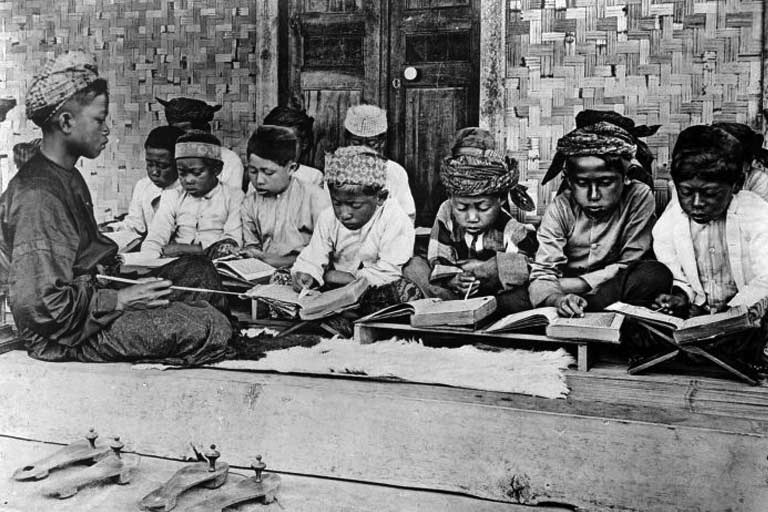
Original Article: Menemukan Inspirasi Islam Indonesia. By: Alkaf
Some of Muslim countries in the early twentieth century tried to bridge dialogue between Islam and modernity. Some were success and others were failed. For example, Pakistan was a failed country. The country, once regarded as the first Muslim country to name itself as the ‘Republic of Islam’, was unable to move further to manifest itself as a modern Muslim country. Even a man like Fazlur Rahman who was supposed to be a drafter of a modern Pakistan must be banished from the country, due to the increasingly polarized conservative faction there. After Pakistan, there is almost no other Muslim country continue to negotiate between Muslim and modernity, until the birth of the Islamic revolution in Iran.
The failure of Pakistan in implementing modernity in its public life for the Muslim community then caused an acute problem for the intellectual development of the next Muslim society’s view of modernity. Instead of looking positively upon modernity as a sociological reality, it is seen as an enemy that has to be worried about. Hence, the Muslim scholars then divert their views from Fazlur Rahman to Al Maududi, or even worse, to the thought of Sayyid Qutb.
This situation, which we can see from Masyumi scholars at the beginning of the New Order by adhering to the Qutb-style view to read the political direction of Islam in Indonesia (Panji Masyarakat, 1972). Of course, it is the intellectual decline of the group following their political heyday of parliamentary democracy, in which Masyumi, along with the PSI, became a party that strongly believed that modernism-in this case democracy-was the new path of a newly emerging country called Indonesia.
However, the impasse was later attempted to be broken by other generations of modernist Muslim scholars. For instance, Nurcholish Madjid, who tried to formulate the relationship of Islam and the modernity after the factional ideology ended early 1970s. Nurcholis, even long before he studied Islamic philosophy from Fazlur Rahman in Chicago, advocated passionately about a more positive view of modernity, in terms of looking at Islamic relations with the state. In fact, he said, after the polemics he had inflicted due to his work in 1971, Nurcholish was concerned about the historical compulsion within the Muslim community (Panji Masyarakat, 1972).
The essence of the intellectual movement that was built by Nurcholish and his group was the attempt to make Islam as an inspiration and the ultimate value in looking at everything that comes from human creation. That’s why the new Muslim progressive group has vehemently rejected Islamist ideology and politicization. For such efforts, Indonesia is better than Pakistan which was unable to give the long-term contribution of positive thought regarding Islam and modernity.
Now we can hardly see the heavy burden, to say ‘no’ for the Islamic party that has become very nationalist, or the nationalist party that has become very Islamic. The distance between the two, both in politics and in social movement is now getting better. Of course, we couldn’t find something like this in the 1950s-1960s. Even parties inspired by the ‘Muslim Brotherhood’ or Ikhwanul Muslimin, like PKS, now seemed to be more ‘Indonesian’ in the current national political stage.
The above historical background is actually provided to show that we actually have great strength in holding Islam, modernity and glory at once. Even without fear and hesitation. Within the noble goal which is to take this great Islamic inspiration.
Historicaly speaking, for example, shows how the founders of this nation – both male and female – have an optimistic style of looking at the future. That is, Indonesia was born for all. It stands for all (ethnic) groups, as what Bung Karno says “… one for all, all for one.”
This memory must be replayed, because of the pressure that is being felt lately, it is increasing the worrisome of the building of our nationality. It is seen by the brightness of the start, there is a retreat when Islam – whether it is demonstrated by the behavior of mass organizations or the outbreak of hoaxes – begins to crash with this national state.
Yet, long ago, Islam has become an inspiration for the establishment of this state, but now, it has become the leading enemy. Therefore, we must return to the purpose for which this state was established. Even more than that, we must re-examine carefully every inspiration of Islam for this nation. That is the way we can become a leading nation.
Translated by : Tiara Ulfah (Ar-Raniry English Club)
Dated : 3rd May, 2018
Original article link : http://padebooks.com/menemukan-inspirasi-islam-indonesia/


